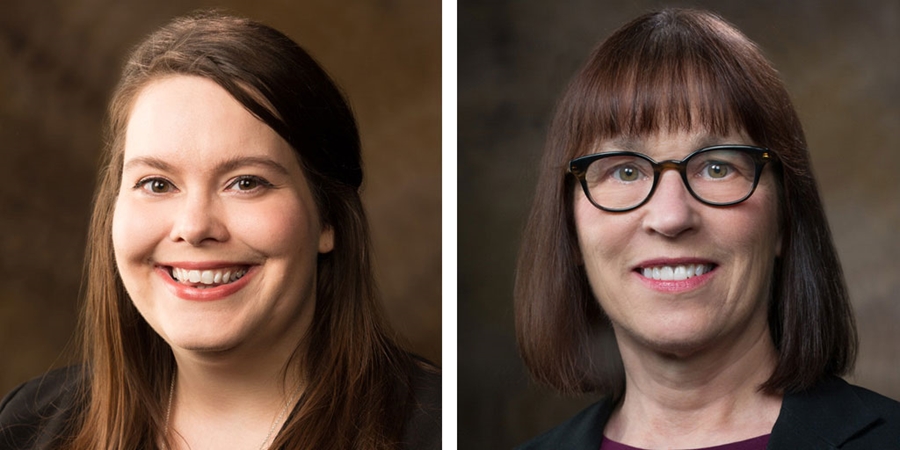The historic White House Conference on Hunger, Nutrition and Health convenes in Washington, D.C., on Sept. 28, and two representatives from the U of A School of Law have received in-person invites.
Susan Schneider, the William H. Enfield Professor of Law and the director of the LL.M. Program in Agricultural and Food Law, and Erin Parker, executive director of the Indigenous Food and Agriculture Initiative, are some of the invitees who will have valuable input on food policy solutions that can have a positive impact on the country.
Law School Dean Cynthia Nance said she is “proud to see the law school playing such a prominent national leadership role in response to this historic call to action to address hunger, nutrition and health.”
The first White House Conference on Hunger, Nutrition and Health convened in 1969 and had a profound impact on the United States’ food policy. Bipartisan legislation in Congress directed the White House to convene again, with the goal of addressing current challenges and setting the nation’s food policy agenda for the future.
Under the guidance of visiting assistant professor Kelly Nuckolls last summer, students in the LL.M. program helped Schneider and Parker prepare by researching and writing about food law and topics that would be addressed at the conference. Their research, reviewed by LL.M. faculty, was then submitted to the White House Conference team.
The LL.M. program will host a virtual and in-person watch party in the LL.M. Study of the U of A law school on Wednesday, Sept. 28, during the event. Along with streaming the conference live, there will be opportunities for discussion among LL.M. program faculty and students. There will also be a conference de-briefing for students on Oct. 13.
For more information about the watch party, visit the LL.M. website for details.
About the School of Law: The law school offers a competitive J.D. as well as an advanced LL.M. program, which are taught by nationally recognized faculty. The school offers unique opportunities for students to participate in pro bono work, externships, live client clinics, competitions, and food and agriculture initiatives. The school strives to identify, discuss, and challenge issues of race, color, ethnicity, and the impact(s) they have on students, faculty, and staff members to achieve a diverse, inclusive, and equitable community. From admitting the Six Pioneers who were the first African American students to attend law school in the South without a court order to graduating governors, judges, prosecutors, and faculty who went on to become president of the United States and secretary of state, the law school has a rich history and culture. Follows us at @uarklaw.
About the University of Arkansas: As Arkansas' flagship institution, the U of A provides an internationally competitive education in more than 200 academic programs. Founded in 1871, the U of A contributes more than $2.2 billion to Arkansas’ economy through the teaching of new knowledge and skills, entrepreneurship and job development, discovery through research and creative activity while also providing training for professional disciplines. The Carnegie Foundation classifies the U of A among the few U.S. colleges and universities with the highest level of research activity. U.S. News & World Report ranks the U of A among the top public universities in the nation. See how the U of A works to build a better world at Arkansas Research News.
Topics
Contacts
Jackie Stites, communication specialist
School of Law
479-575-2814, jstites@uark.edu
Susan Schneider, director of LL.M. Program in Agricultural and Food Law
School of Law
479-575-4334, sschneid@uark.edu
